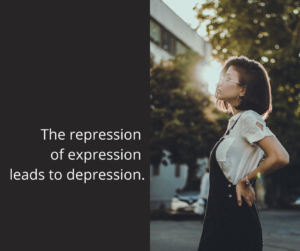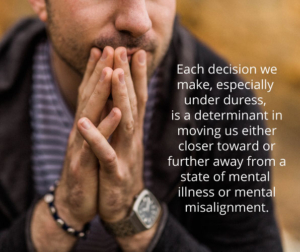Treatment for Depression: Relational Risks and Remedies
When discussing treatment for depression, it’s important to begin by considering the various causes of depression. mentioned in a previous article written by this author on the topic of depression, “Causes of Depression – including Relational and Spiritual Perspectives,” there are a variety of reasons why someone succumbs to depression. Often a mixture of genetics, brain chemistry, and family history play a role in the development of depression.
Furthermore, certain individuals may have a biological predisposition or vulnerability to mood issues when faced with overwhelming stressors. When ample distress is added to a pre-existing vulnerability, an individual is likely to become emotionally dysregulated with symptoms ranging from anxiety to depression. Newport Beach Christian Counseling provides support to address these challenges and promote emotional well-being.
Depression can be situational or characterological, meaning it can be caused by trauma or loss, but it can also be a kind of personality adaptation as well (think Eeyore from Winnie the Pooh).
 Underlying medical conditions (such as thyroid or hormonal issues), use or abuse of prescription medication or other substances (alcohol, marijuana, etc.), a lack of adequate nutrition (eating too much sugar or processed foods) or physical activity, and any pre-existing addictions may contribute to the development of depression.
Underlying medical conditions (such as thyroid or hormonal issues), use or abuse of prescription medication or other substances (alcohol, marijuana, etc.), a lack of adequate nutrition (eating too much sugar or processed foods) or physical activity, and any pre-existing addictions may contribute to the development of depression.
Of course, family history and environment also play a part in developing depression, as does the experience of childhood neglect and abuse. In my practice of psychology, I have discovered that a pattern of dishonesty or living outside the bounds of integrity is an often-overlooked contributor to depression.
While a biological or medical cause of depression may be helped with prescription medications for a time, it is still essential to identify and resolve the underlying behaviors and emotions which support a biologically based depression. Keep in mind that even a biologically based depression (such as post-partum depression) is always also behaviorally, emotionally, psychologically, and spiritually supported.
Treatment for Depression
While many practitioners readily focus on Cognitive Behavioral Therapy and depend upon medication as treatment for depression, it is rarer that a therapist understands that it is our relationship with our self, others and God which must also be assessed, addressed, and re-calibrated to effectively cure a depression (and possibly protect against it in the future).
Throughout several decades of clinical practice and observation, I have noticed that most mental health issues tend to be tied to a failure to adapt in some way to something for which one is unprepared or inadequately prepared. Stressors have come along for which the person is under-resourced either internally (within themselves) or externally (via necessary support structures, friends, family, community).
Destructive defense mechanisms and misinformed or misaligned coping skills are responsible for much mental, emotional, physical, and spiritual suffering. Whereas wellness or the antidote to mental illness always involves achieving greater alignment among each aspect of our human “being.”
Wellness also involves repair and reparation in relationships with those with whom we have been unloving, insensitive, hurtful, unfair, neglectful, or abusive. Assuming appropriate responsibility in our interactions with others is generally accompanied by a greater sense of confidence and freedom, as well as more mutually satisfying relationships.
Good psychotherapy presents us with an opportunity to identify and correct aspects of misalignment within ourselves and within our relationships with God and others. This kind of relational misalignment is evidence of a lack of integrity in the individual, meaning that the person is fragmented within and incapable of clear and effective self-expression.

A lack of or repression of self-expression predictably leads to depression. Finding one’s voice and beginning to express oneself authentically is another pathway that leads away from depression and toward health and wellness.
We must understand how our everyday choices and patterns of interaction either contribute to or destroy our serenity and capacity for happiness and joy. Furthermore, each decision we make, especially under duress, is a determinant in moving us either closer toward or further away from a state of mental illness or mental misalignment.

As stated in the previously mentioned article by this author (see above), once the root cause(s) of your depression is/are understood the therapeutic remedy follows accordingly. Please be aware that the solutions offered by a practitioner tend to be tied to the medical or mental health professional’s understanding of the nature of depression. One’s professional point of view often tends to determine the type of treatment for depression prescribed.
For example, a psychiatrist is likely to prescribe medications to address and enhance neurotransmitter functioning. Of course, while this type of treatment for depression can bring some eventual relief, it also leads to a kind of subscription service that maintains one’s dependence upon a medical professional as well as the prescribed medication over the long term.
So, while in some cases, medication may be necessary, in my opinion, medication alone merely maintains a level of functioning and helps with the management of mood issues. Meanwhile, the person’s lifestyle and life choices may continue to support a dysfunctional level of inadequacy which can undermine one’s success and satisfaction in meeting the changing demands of daily life.
From another perspective, a fitness and nutrition-oriented mental health professional is likely to focus on your lifestyle habits and nutrition as a possible culprit in ongoing depression. While a psychodynamically oriented therapist will look for the source of depression in your early family life experiences.
In my practice, I work holistically, taking into consideration many possibilities of origin and then matching the focus of treatment for depression to the individual’s current level of resources, needs, and desires.
Some of the areas we will explore together include lifestyle and nutritional profile, extended family and upbringing, cultural influences, unresolved trauma, unprocessed pain, spiritual alienation, interpersonal misalignment, experiences of abuse or neglect, medications and supplements, sleep and exercise, and how well resourced you are internally and externally in terms of self and other support.
Relational Risks and Remedies
Problematic (interpersonal and intrapersonal) styles of relating contribute to the development of depression. While the word “interpersonal” refers to interactions between two or more individuals, the word “intrapersonal” describes our relationship with (and within) ourselves.
 Problematic patterns of intrapersonal relating (the way we relate to ourselves generally as well as how we respond when disappointed, hurt, or rejected) tend to be overlooked and/or misunderstood in terms of their contribution to the development of depression and other mood disorders.
Problematic patterns of intrapersonal relating (the way we relate to ourselves generally as well as how we respond when disappointed, hurt, or rejected) tend to be overlooked and/or misunderstood in terms of their contribution to the development of depression and other mood disorders.
Let me assure you that the way you treat yourself matters even more than how you respond to others – especially because you are in a lifelong (even eternal) relationship with your inner being, your soul. Self-betrayal is a frequent and significant contributor to all kinds of mental health problems.
Being kind, compassionate, and understanding with yourself while also being principled and disciplined in matters of importance is the antidote to the deadening pain of ongoing self-criticism, self-rejection, self-betrayal, and a feeling of failure.
One of the most common intrapersonal causes of depression is a practice of saying “yes” when you authentically have an inclination or gut reaction to say “no.” Such behavior is an example of a kind of inner abandonment or self-betrayal which is never something God asks of us. Behaving this way is inauthentic and self-victimizing.
The motive for engaging this undermining pattern usually involves fear and a subsequent felt need to control, manipulate, or manage the impression of another person. A pattern of saying “yes” when you want to say “no” is a kind of dishonesty.
It is also unfair to others and makes you an unsafe person in relationships. You may want to ponder this paragraph for a bit to help this information seep into your soul as a reminder of God’s intention and purpose for us as his “fearfully and wonderfully made” children.
A second quite common intrapersonal risk involves a pattern of overriding your intuitive sense (gut reaction) when it indicates a lack of safety. This undermines one’s sense of self, sense of personal efficacy, and sense of personal dignity. It is essential when seeking to live a life of integrity to conscientiously and prayerfully determine whether something asked of you is in your best interest or whether it undermines and destroys intimacy.
This is because a foundation of trust is necessary to establish and maintain healthy intimate relationships. A pattern of ongoing self-betrayal is a recipe for distrust and eventual relational disaster. This is one of the first things I pay attention to when getting to know a new client. I ask each person, with whom in your life do you have difficulty saying “no?” and then we explore the meaning of this and how it came to be.
Another significant relational risk contributing to depression occurs because of an ongoing pattern of spending time with someone you genuinely dislike or distrust. Over-giving and a lack of relational reciprocity also lead to a relationally based depression.
Do you find it difficult to express yourself when something matters to you? Is it difficult for you to expect that your preferences, opinions, and needs will be considered a priority in your close relationships? Are you able to inform others fairly and firmly when you have hit a personal limit?
Are you comfortable establishing and maintaining a self-protective boundary or do you mistakenly believe that boundaries are things we set for other people in an attempt to govern their behavior? Difficulties in any of these areas may be fueling or feeding symptoms of depression. The antidote to depression is to develop a full range of authentic self-expression.
Please come back next week for the next article in this series in which I will be discussing the risks and remedies of a spiritually-based depression.
If you’re ready to begin treatment for depression, I invite you to contact me or one of the other practitioners at Newport Beach Christian Counseling to schedule an appointment today.
“Feeling sad,” courtesy of Danny G, unsplash.com, CC0 License; “Stay with me,” courtesy of Christiana Rivers, unsplash.com, CC0 License; Quote images designed by California Management Services, copyright 2020, all rights reserved




